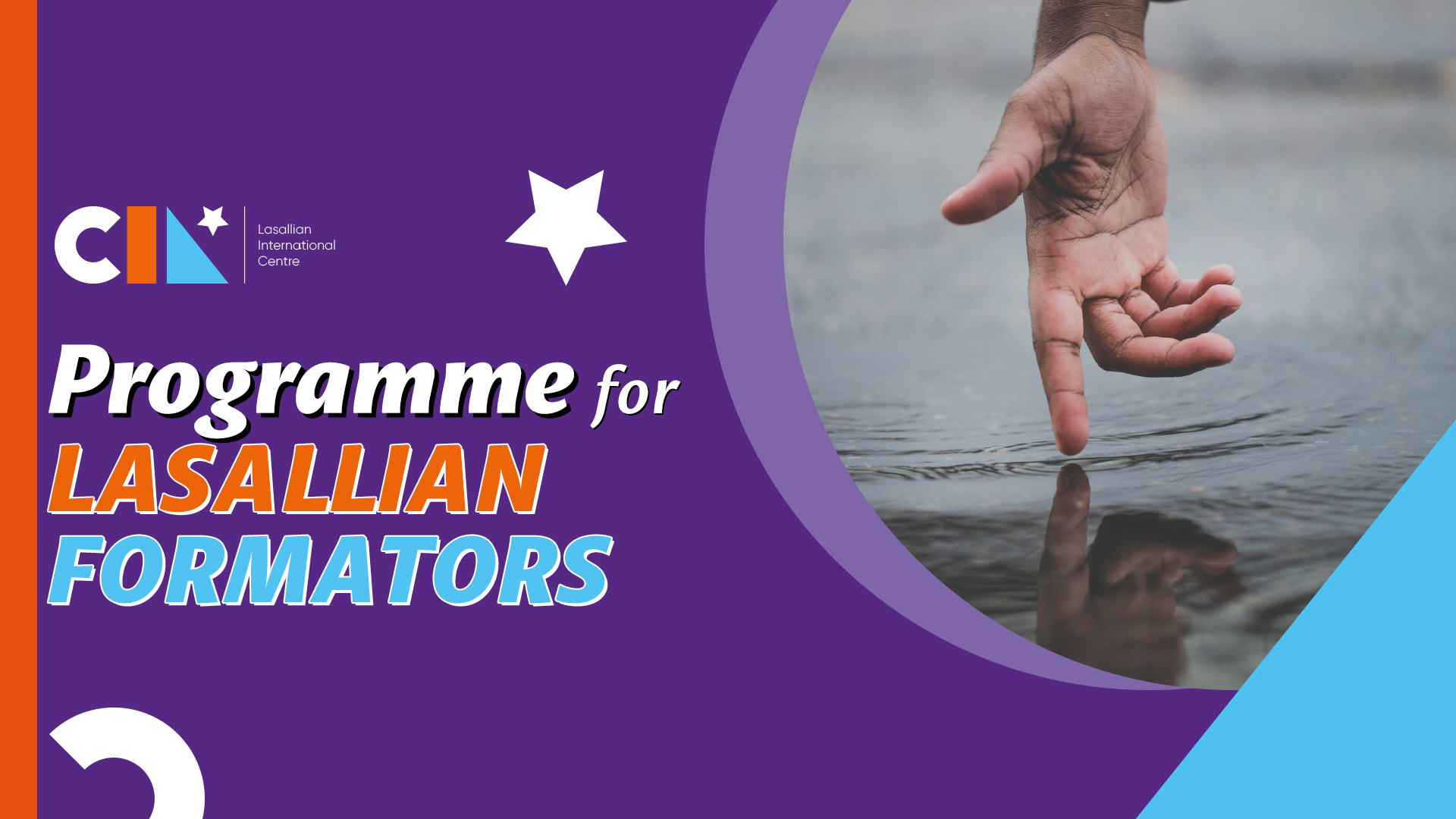The Lasallian International Centre (CIL), run by the former Secretariat for Formation, starts its CIL 2024 programme with the theme: “Programme for Lasallian Formators”.
An online session was held on 9 November 2023, attended by 54 Lasallian formators from 31 countries, representing 18 Districts of the global Lasallian network. The keynote message of Brother Carlos Gabriel Gomez, Vicar General of the Institute, was the highlight of the session, which focused on developing new approaches in the formation and support of Lasallian formators. In addition, this session served as an introduction to a larger in-person session to be held in Rome in January 2024.
The programme of this three-week event at the Generalate of the Institute will guide the formators on a path outlined through the Pilgrim’s Handbook. The programme aims to inspire these formators to become catalysts for change.
The concept of being leaven symbolises the invitation to all Lasallian educators to come up with innovative ideas to revitalise educational programmes, incorporating external, internal and grassroots perspectives.
The main objectives of the programme,” points out Brother Rey Mejias, Secretary for Formation, are:
- Recognize the formative efforts of our existing formation programs for all Lasallians in varied cultural contexts.
- Identify the essential elements for the formation of Lasallians in the 21st century.
- Gain insights on notions of child protection impact on formation.
- Acquire intercultural competency and increase appreciation of cultural influences that contribute to diversity in Lasallian formation.
- Explore ways of integrating the Pilgrim’s Handbook with the current formation programs in the Lasallian schools/ institutions.
- Establish a formal network of formators in the Institute for future formation collaboration works.
- Examine innovative approaches to accompany Lasallian formators in our schools and institutions, using the Pilgrim’s Handbook and the Leavening Project as training sources.
There are three reasons why the Programme for Lasallian Formators, or CIL 2024, differs from CIL 2022.
“Firstly, all the participants work in a school or institutional context, whereas the previous programme was only intended for the initial and ongoing formation of the Brothers,” points out Brother Rey Mejias.
“Secondly, there is an intentional preference precisely for the selection of lay Formators for this programme, whereas the previous one was exclusively for Brother Formators”.
“Thirdly,” continues Brother Rey, “the approach is to integrate the Pilgrim’s Handbook with the Leavening Project, promoted by the current institutional leadership. The image of leaven is indeed an inspiration for our formators.
“Reflecting on the objectives of the programme,” says Br. Rey Mejias, the organisers of CIL 2024 hope to see Lasallian Formators, especially those involved in school settings and institutional ministries, more enthusiastic about the future of Lasallian education for mission. We want them to acquire more and more competences and to appreciate aspects such as formation paths, psychological, cultural, theological, human and spiritual aspects”.
But in addition to hopes and formative goals, challenges must also be considered. “In the Lasallian context, CIL 2024,” confesses Brother Rey, “recognises the lack of qualified formators who are able to deal with the challenges related to psycho-genesis and psycho-dynamics, safeguarding, being a formator in the 21st century, service to the poor, interculturality and identity. We need people exposed to a life programme in formation and lifelong learning that includes information, accompaniment, correction, dialogue and decision-making’.
In fact, “as stated in the Primer of CIL 2024: ‘The programme will facilitate the discovery of new formation paths for Lasallians, in order to achieve an even better integration of theological and anthropological perspectives, with renewed educational pedagogies to achieve harmonious growth between the spiritual, cultural and human dimensions’ (p. 4). The programme emphasises that the Pilgrim’s Handbook is not only the present, but also the future, through requirements already outlined in the Leavening Project.
The best strategy to face the various challenges of the future is an education, for which the most crucial challenge is the development of an inclusive model that can reach everyone, especially the peripheries.



